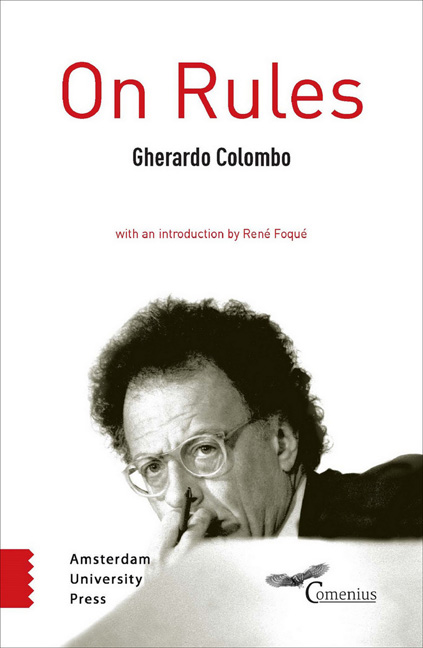Book contents
- Frontmatter
- Introduction: Gherardo Colombo’s Concern for the Democratic State under the Rule of Law: A Work in Progress
- Why?
- 1 An Imaginary Country
- Contents
- Part I The Ambiguities of Justice
- Part II Horizontal Society and Vertical Society
- Part III Towards a Horizontal Society
- Part IV How Do We Get There?
- Conclusion
- Acknowledgments
21 - The Limits of International Rules
Published online by Cambridge University Press: 24 December 2020
- Frontmatter
- Introduction: Gherardo Colombo’s Concern for the Democratic State under the Rule of Law: A Work in Progress
- Why?
- 1 An Imaginary Country
- Contents
- Part I The Ambiguities of Justice
- Part II Horizontal Society and Vertical Society
- Part III Towards a Horizontal Society
- Part IV How Do We Get There?
- Conclusion
- Acknowledgments
Summary
The principles stated in the Universal Declaration of Human Rights lay the foundation for a horizontal type of society: the person cannot be regarded as a means to an end. On the contrary, individuals are the end, and must be guaranteed the right to life and liberty, that is, to lead a decent life and foster their freedom.
The Declaration stemmed from the strong beliefs of the people who adopted it – of the whole world in some respects – and who had learned from the experiences of those immediately preceding years.
It was, however, a very novel way of thinking, for until then in history, trampling on the individual had been the rule. In order for this way of thinking to take root, it was necessary to act, to change things, to make an effort to give up so many privileges and positions of supremacy that were still in place.
In the United States slavery had been abolished some 80 years before, but black people were still strongly discriminated against and treated as if they were a lesser species. Schools for white children were segregated from those for children of colour. Blacks were not allowed to take seats reserved for white people on public transport, and those who refused to comply could be arrested. The differences between the public lavatories for blacks and those for whites were humiliating. In South Africa there was apartheid: blacks and, from a certain point on, Asians too, were segregated in special areas, such as townships, cities – or better, ghettos – which lacked even the most basic of services. They were subject to restrictions on education, on the use of public services, and so on. Almost all African states were still European colonies. Conservative tendencies from the past and attempts at changing things with violence made it extremely difficult really to put the Universal Declaration of Human Rights into practice by moving resolutely from a vertical towards a horizontal society. And the fact that, as we have seen, the Universal Declaration of Human Rights is not a ‘law’, and hence does not compel states to adhere faithfully to it when managing their own internal norms and conduct, has been clearly of no help in overcoming difficulties.
- Type
- Chapter
- Information
- On Rules , pp. 106 - 108Publisher: Amsterdam University PressPrint publication year: 2016



